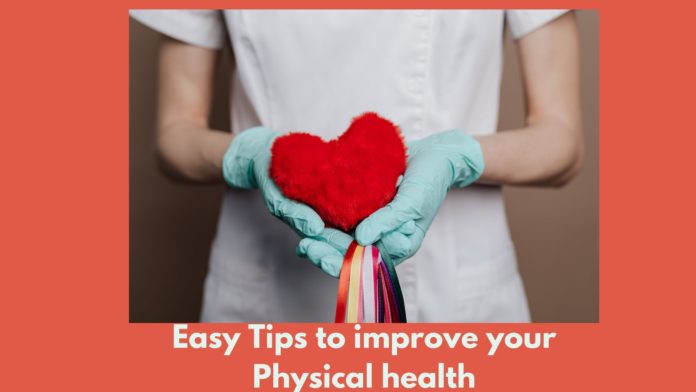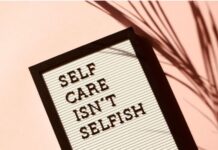In all the introduction drafts I considered, nothing came out better than a simple Wikipedia definition. Its important for my readers to understand the blog and be of utility and my duty is to give you the best not give the most real. According to Wikipedia, ‘Health is a state of physical, mental and social well-being in which disease and infirmity are absent. The meaning of health has evolved over time. In keeping with the biomedical perspective, early definitions of health focused on the theme of the body’s ability to function; health was seen as a state of normal function that could be disrupted from time to time by disease. An example of such a definition of health is: “a state characterized by anatomic, physiologic, and psychological integrity; ability to perform personally valued family, work, and community roles; ability to deal with physical, biological, psychological, and social stress”. Then in 1948, in a radical departure from previous definitions, the World Health Organization (WHO) proposed a definition that aimed higher: linking health to well-being, in terms of “physical, mental, and social well-being, and not merely the absence of disease and infirmity”. Although this definition was welcomed by some as being innovative, it was also criticized as being vague, excessively broad and was not construed as measurable. For a long time, it was set aside as an impractical ideal and most discussions of health returned to the practicality of the biomedical model.’
In this blog, all the different aspects of health are covered with easy-to-follow tips for each of them. Read them carefully and don’t worry, I won’t name-drop and bore you with a lot of technical details and over-ambitious tasks to follow.
PHYSICAL: According to WHO, 60 to 85% of people in the world live sedentary lifestyles, making it one of the most serious…[and]insufficiently addressed…health problems. 1.9 million deaths are attributable to physical inactivity. Nearly 60% of people do not perform the minimum recommendation of 30 minutes of moderate-intensity physical activity daily.
EASY TIPS to improve your Physical health:
1. Diet-timing, amount distribution and type
- Amount distribution: follow the Inverted Triangle Law of Food. It intrinsically means that the relative amount should be lower with each passing meal.
- Timing: Please refer to image 1(a). Chewing properly and eating mindfully are very important although a lot of people ignore them due to their busy lives.
- Type: cut caffeine products(ex., tea and coffee), fried foods, soft drinks, processed meats, and sweets to ZERO. Most blogs use the word ‘try’; if you want improvement for real, I would say ‘just do it’. Include 3 servings of fruits and vegetables in your diet every day. Skipping meals-especially breakfast slows down your metabolic rate and causes weight gain. The reader should start getting his/her alcohol and drug intake to nil. ‘Eat not to dullness; drink not to elevation’ as Benjamin Franklin use to say(read on to find out more about this virtuous person). Remember, your body weight is all about diet timing and calorie distribution. Don’t mistake hitting the gym for getting into your ideal weight-it just increases your metabolism and gets you into shape.
2. Sleep: 7.5 hours of sleep every 24 hours is ideal. Follow the National Health Service here to get few more specialised tips. Sleeping time should be between 10 pm and 5 am. (Afternoon naps are advisable.)
3. Sex and ejaculation: no matter the age and sexual orientation of the reader, he/she should keep in mind that ejaculation should be limited to 3 times per week. Chastity, according to Benjamin Franklin, America’s most versatile genius, ‘rarely use venery but for health or offspring, never to dullness, weakness, or the injury of your own or another’s peace or reputation.’(Using condoms are better than any other method of protective sex.)
4. Screen timing: Although inevitable in the digital age, screen timing should be limited to 2 hours a day; although the original timing among the masses is 11 hours which is very unhealthy.
5. Professional help: Visit the dentist every 3 months and change your toothbrush every 6 months. A full body check-up with all the medical tests ranging from bones, ENT, ophthalmic, etc. is recommended every 2 years. And please take the doctors’ advice, don’t ignore your health by pretending you are healthier.
6. Exercise plan: Follow this, nothing else, if you are outright lazy, at least start:
- 30 to 60 push-ups
- 2 minutes plank
- 50 jumping jacks
- 25 squats
* Print these pictures and paste them in the kitchen or dining hall: images (1), (3), (13), (16), (20).
EMOTIONAL: 77% of Americans report experiencing physical symptoms and 73% psychological symptoms related to stress indicating a lack of ability to handle stress i.e., emotions well. In other words, they lack emotional competence. According to Daniel Goleman, the author of the New York Times Bestseller Emotional Intelligence: Why it can matter more than IQ, emotional competence matters twice as much as a high IQ or stellar grades in academia. EQ determines more than 95% of the individual’s success in some professions like leadership and management. Major companies have compiled statistical proof that employees with emotional intelligence undoubtedly affect the at-job growth and company success regardless of their IQ level(surprising right?).
Emotional competence is the mastery of all its five aspects namely:
- Self-awareness: to know one’s feelings and emotions clearly
- Self-regulation: to keep oneself in order and act composedly
- Self-motivation: to motivate oneself in the face of difficulties
- Empathy: to understand other’s point of views
- Interpersonal skills: communicating effectively.
EASY TIPS to improve your Emotional Competence:
1. Journal: never forget to put your thoughts in a comprehensive manner in order to understand your true emotions and wants. This takes a lot of time(usually years to understand what and how you should write to harness the maximum benefit) for those who have never or rarely write their experiences-you can also film them in a video diary.
2. Get involved in a diversity of activities and contribute: This means even helping the poor and cleaning the drain. Use your creativity to find out new solutions to the problems you don’t like. Volunteering or adventure and debating clubs are great starting points. These tips essentially develop all the five wings of emotional competence.
3. Look and speak confidently: here, interpersonal skills are emphasized. Even if you are wrong, the more confident you are, you will be an attractive candidate for jobs, charismatic leader for business, and potential partners for relationships. Not only that, it helps to tone and make up for your weaknesses that are nascent.
4. Always keep your calm in moments of emotional outbursts and write down what and how you feel: During instances of conflict, emotional outbursts and volatile feelings of anger, panic and anxiety are common in people. Make a conscious choice to focus on ensuring that your actions and words are in alignment with that and don’t succumb to impulses and emotions-think introspectively.
5. Develop clean listening skills: Listen to podcasts and “listen” TV and videos. Pay attention to the non-verbal details of a conversation by closing your eyes or lying down while you switch to your favourite TV show.
6. Practice mindfulness and meditation: Practice Vipassana daily for 15 minutes. See image 2 and refer here for details. New York Times bestselling author Yuval Noah Harari claims Vipassana has changed his life and still practices it for 2 hours daily.
7. Understand the perspectives: When you are poured in with lambasting words and signs, see through the various perspectives that are possible rather than self-pity and hate generation. Take critique with the “brain” instead of “heart” and getting offended or defensive, take a few moments to understand where the critique is concerning, how it is affecting you or your performance and how you can leverage the criticisms to become better by rectifying your mistakes.
SOCIAL (although similar, Social and Emotional health advice are dealt with differently here.): This aspect is just a branch of the EMOTIONAL HEALTH part, just very widely important to be included and worked on separately. 15 million (7%) of American adults have social anxiety disorder who are at an increased risk for substance use disorder and major depressive disorder. More than 75% experience their first symptoms during their childhood or early teenage years. Social Intelligence (SI) concerns with effectively building and maintaining relationships; navigating social environments which are done with interpretation and comprehension of their social environment. Although society puts a huge emphasis on technical smartness and IQ, but our emotional handling prowess affect much significantly. As absurd as it may sound, the fact that relationships improve our immune system and help combat disease is true and modern medical science is giving a lot of attention to the aspect while treating patients of literally any kind. It is important to improve one’s social intelligence as this has numerous benefits ’[1] and be “street smart”.
EASY TIPS to improve your Social Intelligence:
1. Socialise and communicate with those who aren’t your closes friends or relatives for a year.
2. Get out of unhealthy relationships even if romantic feelings say the other way; you can give your last try by communicating everything you feel to your partner. If the partner takes your problems well and commits to make changes to your relationship, good; else, the world is not out of potential mates!
3. Avoid the dark triad of people: the narcissistic personality, the Machiavellian personality and the psychopath or antisocial personality.
4. Ask for clarity: when you cannot identify the reasons or are about to act in a hostile manner, it is best to say ‘I am sorry sir/madam I didn’t get your perspective, could you please state it clearly’ politely, and in a gentle and confident body language with palms open wide, straight spine and head-chin high in the air. Any boiling head is bound to get placated.
5. Understand the ways great public speakers demonstrate their points and record yourself while you speak. Try to know your weaknesses, erase speaking jams, allow yourself to know more about the way of description that best suits your comfort ability.
6. Identify the areas that annoy you, make you uncomfortable, lowers your self-esteem and confidence, what are your comfort zones, and write them down comprehensively with detailed explanations mining deep inside your inner-self to understand its roots. Only then is healing from social and emotional problems will be possible.
7. Reflect on your life every day and after every social interaction with an unfamiliar audience. Ask yourself these questions and note down the answers in your journal comprehensively:
- What went well?
- What went wrong?
- What have I done differently?
- What would I have done differently?
- What did I learn from this interaction?
8. Know your relaxation media and use it well: hang out with people whose moods you want to catch. If moods are gloomy, hang out with people who will infect you with the good ones![3 ]And above all, know the things that best helps to relax you and include them in your daily routine in between tasks for keeping yourself refreshed.
9. Choose your company wisely: identify the people who are competent in the skills and qualities you are venturing to acquire and spend as much time with them as possible. Expertise is contagious folks!
10. Get involved in society, make more friends and start spending more time with family. ‘Goleman’s prescription for a long, healthy happy life is positive relationships. Our partner, our friends, our colleagues, our kids, support our soul and our immune system. Goleman…[insists] that kind words, physical touch, a song from childhood improve the vital signs of the sick and even fatally ill.’[3] However, you should know the limit as to what extent you should spend time.
* Print these pictures and paste them in the kitchen or dining hall: images (2), (5), (6), (12), (18), (19).
INTELLECTUAL: ‘Intellectual wellness is important…it helps people achieve a more balanced life. Exploring new ideas and understanding a variety of subjects makes you more mindful and a more well-rounded person…when you seek out new experiences and gain new knowledge, you are expanding your intellectual wellness.’[2]Intellectual wellness refers to active participation in scholastic, cultural, and community activities. ‘Maintaining intellectual wellness throughout your life keeps your mind stimulated, promotes creativity and leads to a happier, healthier you. It may even reduce the risk of cognitive decline or slow the onset of dementia symptoms.’[4] Did you know that even a 10 point increase in the citizens’ IQ of a country can double the rate of development of the nation? To improve intellectual wellness, value creativity, curiosity, and lifelong updating with the latest knowledge and skills.[5] Here are eight simple steps to increase your wellness…intellectually.
EASY TIPS for developing Intellectual health:
1. Read and enjoy the process, not the material: pick up a classic or the latest on the bestseller list. May be there was something you enjoyed doing and looking, its time to recall those and get rocking. Pick up the book or download it on your tablet or computer. It’s the oldest and best brain exercise. After doing required homework and readings, find time during the morning, night, or weekend to calmly read something for recreation. Reading, especially something you enjoy, improves your intellect by stretching your mind to think about things you normally don’t think about!
2. Practice reasoning questions at least 10 daily. Could be verbal or non-verbal. Better if quantitative.
3. Undertake random writing and research tasks. Anything that passes your life; should not be of interest or importance to you. Choose randomly.
4. Participate in debating competitions: start with debating with your friends and intimate close people. First choose the one which seems easy to you, but take the point opposite to that. Trust me, that’s how professionals practice to get an edge over their opponents and increase their confidence.
5. Aprenda un idioma extranjero.
Even a foreign language in your profile boosts employment prospects and forces the brain to connect and creatively come up with new neural connections. This helps with being receptive to new knowledge and helps polish and broaden information already learned.
7. Play a musical instrument: learn how to create sounds, make patterns, and emote through music. Seeking online support or someone you know is not advisable-learn on your own.
8. Crosswords, sudoku puzzles, board games, Mastermind, Crime Scene, trivia, checkers, chess and more: Working through puzzles or finding words in patterns uses a lot of brainpower and have proved to increase intellectual wellness. ‘The next time you have free time, pick up a deck of cards or pull out a board game and play!’[5]So, the next time you are stalking people and scrolling social media, go to the Play Store or whatever “store” you have and download games like these, something complex, not PUBG or GTA!
9. Experience the arts. Attend and/or participate in cultural events. Music, the arts, dance and other cultural activities expresses creativity and stimulates the brain in new ways. Intellectual wellness is tied to social wellness, so participate in cultural events to boost your health in both areas while having fun at the same time. Keep abreast of current affairs.
10. Talk. A simple conversation counts as a brain exercise, you might now take your conversations verbally and seek diverse and unfamiliar partners. Bring up a random event for a discussion with friends. Be open-minded so that even if you don’t agree with their point of view, you are expanding your mind by having a lively discussion and hearing new ideas. Attend a lecture. Expose yourself to new ideas.
* Print these pictures and paste them in the kitchen or dining hall: images (3), (4), (7), (8), (9), (10), (15)
BONUS: Print these too and brainstorm your way through.
Image 21, the ultimate goal achievement cheat-sheet. Know your goals and duties well: list down your goals and take each step seriously and list down the subtopics; take as much time as needed. This is a draft of a lifetime.
Image 17, to remind you that high grades are not enough
Image 14, to get you started with the process
Image 11, set it as your screen wallpaper!
Oh, you thought it was over? Remember about America’s most versatile genius Benjamin Franklin I talked about at the beginning of this blog? He is the guy in those American dollar bills: image(22).
Benjamin Franklin’s daily routine: image(23), follow it as closely as you can. The advice in this blog would also do.
Franklin wrote(read mindfully, it’s important): ‘in the various enumerations of the moral virtues I had met with in my reading, I found the catalogue more or less numerous, as different writers included more or fewer ideas under the same name. Temperance, for example, was by some confined to eating and drinking, while by others it was extended to mean the moderating of every other pleasure, appetite, inclination, or passion, bodily or mental, even to our avarice and ambition. I proposed to myself, for the sake of clearness, to use rather more names, with fewer ideas annexed to each, than a few names with more ideas; and I included under thirteen names of virtues all that at that time occurred to me as necessary or desirable, and annexed to each a short precept, which fully expressed the extent I gave to its meaning.’
The virtues with their precepts are:
1. TEMPERANCE. Eat not to dullness; drink not to elevation.
2. SILENCE. Speak not but what may benefit others or yourself; avoid trifling conversation.
3. ORDER. Let all your things have their places; let each part of your business have its time.
4. RESOLUTION. Resolve to perform what you ought; perform without fail what you resolve.
5. FRUGALITY. Make no expense but to do good to others or yourself; i.e., waste nothing.
6. INDUSTRY. Lose no time; be always employed in something useful; cut off all unnecessary actions.
7. SINCERITY. Use no hurtful deceit; think innocently and justly, and, if you speak, speak accordingly.
8. JUSTICE. Wrong none by doing injuries, or omitting the benefits that are your duty.
9. MODERATION. Avoid extremes; forbear resenting injuries so much as you think they deserve.
10. CLEANLINESS. Tolerate no uncleanliness in body, clothes, or habitation.
11. TRANQUILLITY. Be not disturbed at trifles, or at accidents common or unavoidable.
12. CHASTITY. Rarely use venery but for health or offspring, never to dullness, weakness, or the injury of your own or another’s peace or reputation.
13. HUMILITY. Imitate Jesus and Socrates.
Some downloadable PDF documents for my rookie readers to get kick-started soon after completing reading and go visit the links at the end of the PDFs. Those are really great websites…
Some book recommendations for you(since you made it to the end, almost!):
- Sapiens: A brief history of humankind by Yuval Noah Harari
- Emotional Intelligence: why it can matter more than IQ by Daniel Goleman
- Mastery by Robert Greene
- Churchill: Walking With Destiny by Andrew Roberts
- Don Quixote by Miguel Cervanted
- Instant MBA: Think, Perform and Earn Like a Top Business-School Graduate by Nicholas Bate
CONCLUSION: Don’t get scared with the advice and tips I am pouring you with. But, start now, with any task you find randomly. After you feel like you are getting along with the task in hand, take up consecutive tasks and increase your daily checklist of goal accomplishment targets. For that, you need to prioritise what is important and what is urgent. If you are having trouble developing good habits and getting rid of your old and bad habits, read the book Atomic Habits by James Clear. This book will help you to incrementally develop yourself without even you feeling a thing. If followed properly, you would find yourself as a completely enlightened and evolved person 6 months from now. The mantra is to get 1% better every day. It is highly advisable to read Emotional Intelligence: why it can matter more than IQ.
Some final words, please ask yourself ‘what good shall I do today’ and ‘how do I solve my problems in an innovative way’ every day before doing anything, like the first thing in the morning.
Remember, the highest aim of life is to fully develop your knowledge through a wide variety of intellectual, emotional and physical experiences. According to Wilhelm von Humboldt, one of the pioneers of the modern education system in the 19th century, ‘the aim of existence is a distillation of the widest possible experience of life into wisdom.’
Have sex but limited; drink wine but limited; but the best thing you would be doing in your life is to completely jettison yourself from social media(read Digital Minimalism: Choosing a Focused Life in a Noisy World by Cal Newport); start reading a book every month; learn a new language every year; workout at least the ones mentioned and at least 4 days a week. Develop that burning desire to do great things and become an expert and successful. Trust me, I have been through problems and the tips and materials are exactly the ones that helped me to get out of my confusions, lack of expertise and competence in all the sectors of health. I don’t admit that I am an expert, but I am in a far better position than 6 months ago and my improvement was gradual. If you follow the steps persistently and effectively, you are sure to improve your overall health. And when you do, thank me in the comment section. Until then, BYE!
AUTHOR BIO
Deep Pathak was born in 2000 in Guwahati, India. Deep ranked 14th all over India in the CITDEE engineering entrance exam in 2019. Deep is an incrementalist and learns by undertaking ambitious self-challenging projects. Criticisms and rejections are his metaphorical shadows and so are his high ambitions and persistent effort. He is a voracious reader and writer of various subjects and has won recognition in international essay competitions; a firm devotee of the enlightenment; and believes in the potential of constructive amalgamation of science and arts to increase the scientific knowledge base and start new areas of research. Culture matters a lot for him and he is the most efficient in a calm and serene environment. Deep wants to light sustainable and the brightest torches of enlightenment: the case for reason, science, humanism, liberty, and progress.
















